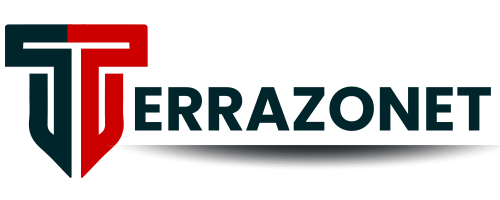Table of Contents
- Changing Demands In The Caregiver Field
- Technological Advancements Transforming Caregiving
- Training And Education: Evolving Needs
- Workplace Culture And Support Systems
- Growth In Career Opportunities
- Mental Health And Self-Care For Caregivers
- Legal And Ethical Considerations Shaping Tomorrow’s Caregivers
- Tips For Thriving In The Future Of Caregiving
- Conclusion: Preparing For A Rewarding Caregiver Journey
Changing Demands In The Caregiver Field
The caregiver field is evolving rapidly, driven by shifting demographics, advancements in healthcare technology, and the growing demand for personalized care. As the population ages, the need for skilled caregivers is projected to rise significantly, not only in traditional home care and nursing settings but also in specialized roles such as dementia care, palliative support, and virtual health assistance. Future caregivers will likely require interpersonal skills, adaptability, and familiarity with tech-enabled care tools, making continuous training and professional development more important than ever.
In the coming decade, career opportunities for caregivers are expected to diversify and expand, offering both full-time and flexible roles to meet the varied needs of clients and their families. For those seeking local opportunities, caregiver jobs in and around Chippewa Falls, WI, present a chance to be part of this growing sector while making a meaningful difference in people’s lives. With demand expected to surge, caregivers who embrace ongoing learning and innovation will be well-positioned for long-term success.
Technological Advancements Transforming Caregiving
Technological advancements are transforming caregiving by enabling real-time monitoring of vital signs, remote monitoring platforms, telehealth visits, electronic health records (EHR), and artificial intelligence. These advancements allow caregivers to coordinate remotely with doctors and specialists, ensuring timely care without constant travel. Electronic health records streamline documentation, allowing caregivers to access vital client information instantly. Artificial intelligence is emerging as a tool for triage and early detection of health issues, leading to swifter interventions and improved client outcomes. As smart devices and automation become integrated into home health environments, caregivers will benefit from more efficient workflows, better medication management, and enhanced safety. These innovations make caregivers’ lives easier and improve the independence and security of those receiving care. By adopting user-friendly apps and mastering new devices, caregivers can spend more time building meaningful relationships and less dealing with paperwork or logistical barriers, leading to higher job satisfaction and improved patient outcomes.
Training And Education: Evolving Needs
The caregiving profession is transforming significantly, shifting from on-the-job learning to proactive professionals seeking certifications and personal growth. This shift aims to enhance the quality of care and ensure patient safety and quality of care. Virtual training programs are now being introduced to provide tailored instruction in areas such as dementia care, chronic illness management, and new technologies. Employers also prioritize ongoing professional development to adapt to regulatory updates and medical advances. This shift transforms caregiving from an on-the-job learning experience to a lifelong career, elevating care standards and helping professionals stand out in a competitive labor market.
Workplace Culture And Support Systems
A nurturing workplace culture is crucial for improving caregiver retention and job satisfaction. Facilities and agencies that invest in collaboration, learning, and accessible leadership create environments where caregivers feel valued. Formal mentorship programs, transparent feedback channels, and access to professional mental health resources contribute to improved morale and engagement. Studies show that organizations with strong support systems see lower burnout rates, increased loyalty, and better client outcomes. Cultivating a positive, responsive workplace is essential for delivering high-quality, consistent care. Leaders who listen to caregivers’ needs lead to higher-quality care and stronger relationships between caregiving teams and their clients. Forward-thinking agencies are experimenting with new benefits, such as paid wellness time and financial bonuses for exemplary care. A supportive professional environment is critical for recruitment, long-term retention, and the well-being of caregivers and clients.
Growth In Career Opportunities
The growing demand for healthcare services and new training pathways in the caregiving industry has led to many career opportunities. Caregivers can advance into team leads, care coordinators, dementia specialists, or administrative roles within their organizations. Others can pursue careers in caregiving education, advocacy, or policy development, gaining wider influence and impact. This broadening career ladder allows professionals to shape their journeys and move laterally or upward as their skills and interests evolve. The increased professionalism within the industry provides a clear path for long-term advancement, higher wages, and recognition as essential community partners. New specializations, such as technology trainers for older adults and integrated care coordinators, are also emerging.
Mental Health And Self-Care For Caregivers
The future of caregiving depends on a workforce that is well-cared for themselves. Mindful self-care and access to support resources are critical for combating burnout, improving job satisfaction, and delivering consistent, compassionate support.
Industry leaders now make self-care and mental wellness central to recruitment and retention. Comprehensive health plans for caregivers, access to short-term counseling, and open conversations about the job’s challenges are leading the way in destigmatizing the need for help. As a result, caregivers are better equipped to maintain their energy, focus, and joy in their work.
Recognizing signs of fatigue, forming peer support circles within the workplace, and seeking professional guidance when necessary are practices that truly sustain caregivers over the long term.
Legal And Ethical Considerations Shaping Tomorrow’s Caregivers
The caregiver profession is increasingly shaped by evolving rules surrounding documentation, privacy, and safety. More states are mandating certifications and government background checks, which enhance public trust and underscore the importance of professionalism and ethical behavior. Advocacy groups continue to drive positive changes by pressing for policies that protect vulnerable clients and strengthen career security for caregivers.
Ongoing education in ethics, compliance, and reporting procedures is expected to become a standard part of the caregiving career path. As privacy laws such as HIPAA are expanded and digital records become more prevalent, caregivers will require a strong knowledge of regulatory frameworks and be held to higher accountability standards.
Simultaneously, ethical decision-making is increasingly embedded into training programs, reinforcing the importance of treating every client with respect, empathy, and confidentiality. Legal and ethical considerations are not just regulatory hurdles; they provide a foundation for client trust and build a safer environment for all parties.
Tips For Thriving In The Future Of Caregiving
- Commit to continuous learning, especially in new technology and patient care.
- Engage with peers to share insights, support, and professional advice.
- Develop expertise in specialty areas such as hospice, dementia care, or child health.
- Prioritize individual well-being and self-care strategies.
- Stay up to date with regulation changes and emerging best practices.
Taking ownership of your career trajectory by embracing professional growth opportunities, networking within the field, and adopting best practices around mental health are cornerstones for success in this evolving landscape.
Conclusion: Preparing For A Rewarding Caregiver Journey
The landscape of caregiver careers over the next decade is bursting with promise. Embracing advancements in training, technology, and workplace culture will set caregivers up for lasting, rewarding futures. As the need for skilled professionals grows, those who are adaptable, compassionate, and open to continual growth will not only thrive but also play a pivotal role in shaping a more supportive and effective caregiving ecosystem for all. Entering this field now means becoming a catalyst for positive change, both in your career and within your community.
YOU MAY ALSO LIKE: Telemedicine Landscape For Mental Health to Build a Better Healthcare Experience











